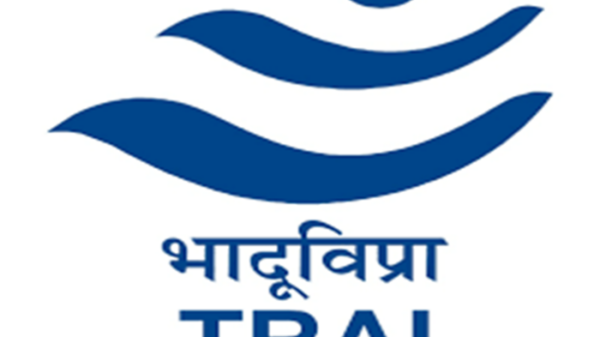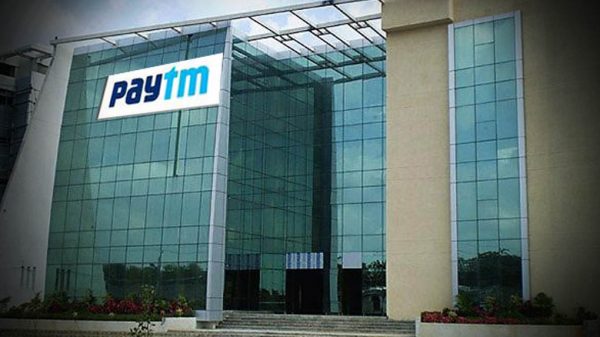By Smitha Krishna Prasad, CCG-NLUD
On December 26, 2018, the Department of Industrial Policy and Promotion, Ministry of Commerce and Industry (DIPP) published Press Note 2 of 2018 (PN 2) which amends and tightens existing regulations applicable to e-commerce entities that have foreign direct investment. PN 2 will amend India’s existing Foreign Direct Investment (FDI) Policy, 2017, with effect from February 1, 2019.
While trying to ready themselves for compliance with the conditions under PN 2, some of the big marketplaces such as Amazon and Flipkart asked for an extension of time before it comes into effect, since their business models will have to change substantially. Others, including the Confederation of All India Traders welcomed the changes to the FDI Policy and opposed extension of timelines for its implementation. However, with no extension on the date of implementation despite multiple requests, the conditions prescribed in PN 2 are now in effect.
 FDI Policy
FDI Policy
The FDI Policy regulates the nature and amount of foreign direct investment permissible in Indian industry. It identifies how much foreign investment is permitted in companies in different sectors (in terms of percentage of equity), whether there is need for government approval for such investment, and places certain conditions to be followed by the companies which have such foreign investment.
In the case of e-commerce (defined as the buying and selling of goods and services including digital products over digital and electronic networks), the FDI Policy identifies two types of e-commerce undertakings. The first is inventory based, akin to a B2C model, and the second marketplace based – also considered to be a B2B model.
An inventory-based model is one where the e-commerce company owns the goods and services, and sells them directly to the customer – no FDI is permitted at all in such companies.
A marketplace-based model is one where the e-commerce entity only provides the digital platform (on a digital / electronic network), and acts as a facilitator between the customer and the seller. Upto 100% foreign direct investment is permitted in such companies. However, certain conditions have been imposed on the way these entities can operate, in order to level the playing field between traditional brick and mortar stores, and India’s growing tech / e-commerce industry, which has attracted billions of dollars in foreign investments over the past few years.
Under the existing FDI Policy, any e-commerce entities that have foreign direct investment are only allowed to undertake B2B transactions with the sellers registered on the marketplace. This includes provision of services such as warehousing, logistics, order fulfilment, payment collection etc. However, the marketplace entity is not allowed to exercise ownership over the inventory sold on the marketplace, or influence the sale price of the goods / services directly or indirectly. The responsibility for the sale, delivery of goods / services, and any warranty will remain solely with the seller.
The definition of e-commerce under the FDI Policy would cover most online services that we use today – including food delivery services, video and music streaming services, ride sharing and other ‘over the top’ services, in addition to the retail marketplaces that one immediately associates with the concept of ecommerce.
However, the FDI Policy provides a broad exemption from the conditions applicable to e-commerce entities, in the case of sale of services through e-commerce, a category under which most non-marketplace actors would fall. These service providers are required to comply with any conditions in the FDI Policy applicable to the services sector. For instance, entities that engage in broadcasting news / current affairs TV content are subject to stricter conditions under the FDI Policy. Therefore, if content streaming services (which can be considered to provide a service and not sell products to their customers) wish to stream content from news channels, certain conditions may be applicable in order to make them eligible to have FDI.
Press Note 2: Amendments to the FDI Policy
PN 2 now seeks to strengthen provisions applicable to the e-commerce sector. The DIPP (in a response issued in relation to media reports on PN 2), clarified that despite the provisions existing in the FDI Policy, several complaints had been made that e-commerce entities were influencing sale prices, or controlling inventory, and indirectly violating the FDI Policy. In order to address this, PN 2 introduces a couple of important changes:
First, it looks at the different means of exercising control over the inventory. In addition to the bar on direct ownership of inventory by the marketplace e-commerce entity, PN 2 provides some additional conditions:
(a) if the marketplace e-commerce company or its group companies hold equity in a vendor, or control the inventory of a vendor, such vendor will not be allowed to register as a seller on the marketplace platform run by the e-commerce company; and
(b) a somewhat vaguely drafted condition, that many initially reported re-hashed existing conditions under the FDI Policy, by providing that if more than 25% of the sales on a marketplace are undertaken by one seller, then its inventory will be deemed to be controlled by the marketplace e-commerce company, and such sales will therefore be barred. However, a more literal reading of the condition would provide that if the seller purchases more than 25% of its inventory from the marketplace e-commerce company or its group companies, then its inventory will be deemed to be controlled by the e-commerce company.
It is likely that the DIPP intended to impose this latter condition, in order to address market practices where for instance, an affiliate / group company of marketplace entity X, would sell significant quantities of retail products to the certain sellers (on a B2B basis), and these products were then sold by the sellers on the marketplace platform run by X itself. In this case, the existing condition that an e-commerce company should not permit more than 25% of sales on the marketplace to be made by one vendor / its group companies, will no longer apply.
Second, PN 2 additionally looks at the relationship between the marketplace e-commerce entity and the sellers registered on its platform. It provides that:
(a) the services that the e-commerce company provides to sellers should be fair and not discriminatory, i.e. the same terms of service should be offered to all vendors in similar circumstances;
(b) the services should be provided on an arm’s length basis;
(c) where any cashbacks are provided to buyers, such cash backs should also be fair and not discriminate (presumably in terms of which seller’s products these cashbacks are offered on);
(d) an e-commerce company cannot mandate any seller to only sell products on their platform.
Third, in terms of compliance, PN 2 places an additional requirement of showing compliance with the FDI Policy on the marketplace e-commerce companies that have foreign investment. This must be done by providing a certificate and report of a statutory auditor to the RBI every year.
PN 2 was published in December 2018 with no notice / consultation, and has now come into effect as of February 1, 2019. Several questions about the new conditions were raised immediately on its publication. The DIPP then issued a response to these questions soon after, noting that PN 2 is only meant to reiterate existing policies on FDI in e-commerce companies, in a manner that allows better implementation. The response also indicates that these steps have been undertaken to ensure fair, competitive and transparent business practices in the interest of consumers. At the same time, it is clear that the DIPP is reacting to specific instances of (sometimes creative) business practices undertaken by marketplaces in order to grow business while complying with the existing FDI Policy (of 2017).
Over the last few years, we’ve seen this scenario repeat itself, and most new conditions in the FDI Policy can be traced back to specific practices by big e-commerce companies that are in the retail / marketplace business, and invariably have significant amounts of FDI.
The new conditions introduced in PN 2, are sometimes vague – for instance the idea of ‘25% of inventory being purchased from the marketplace’ has been interpreted in different ways as discussed above. We will also have to see how an auditor determines whether the services offered by a marketplace to its sellers are fair and non-discriminatory, in similar circumstances, concepts that usually have a legal import, and are left to the courts to determine. Establishing what qualifies as an arm’s length transaction will also be difficult in the absence of more direction from the regulator. Given that the larger marketplaces have close to 4 lakh sellers registered, it is not clear whether the goal of better implementation will be met through this audit exercise.
Apart from the practical difficulties of implementation of the conditions and compliance with PN 2 by the retail e-commerce industry, the larger issue that this exercise raises is whether a DIPP lead FDI Policy is the place to address the issues that the FDI Policy is trying to address.
If PN 2 has been issued to ensure fair, competitive and transparent business practices in the interest of consumers, then perhaps other avenues of regulation, such as competition law, would be more effective, given that consumer interests can be affected irrespective of foreign investment a marketplace / retailer. This is a particularly interesting question, given that most well-known e-commerce marketplace entities (or groups) today have some FDI.





























